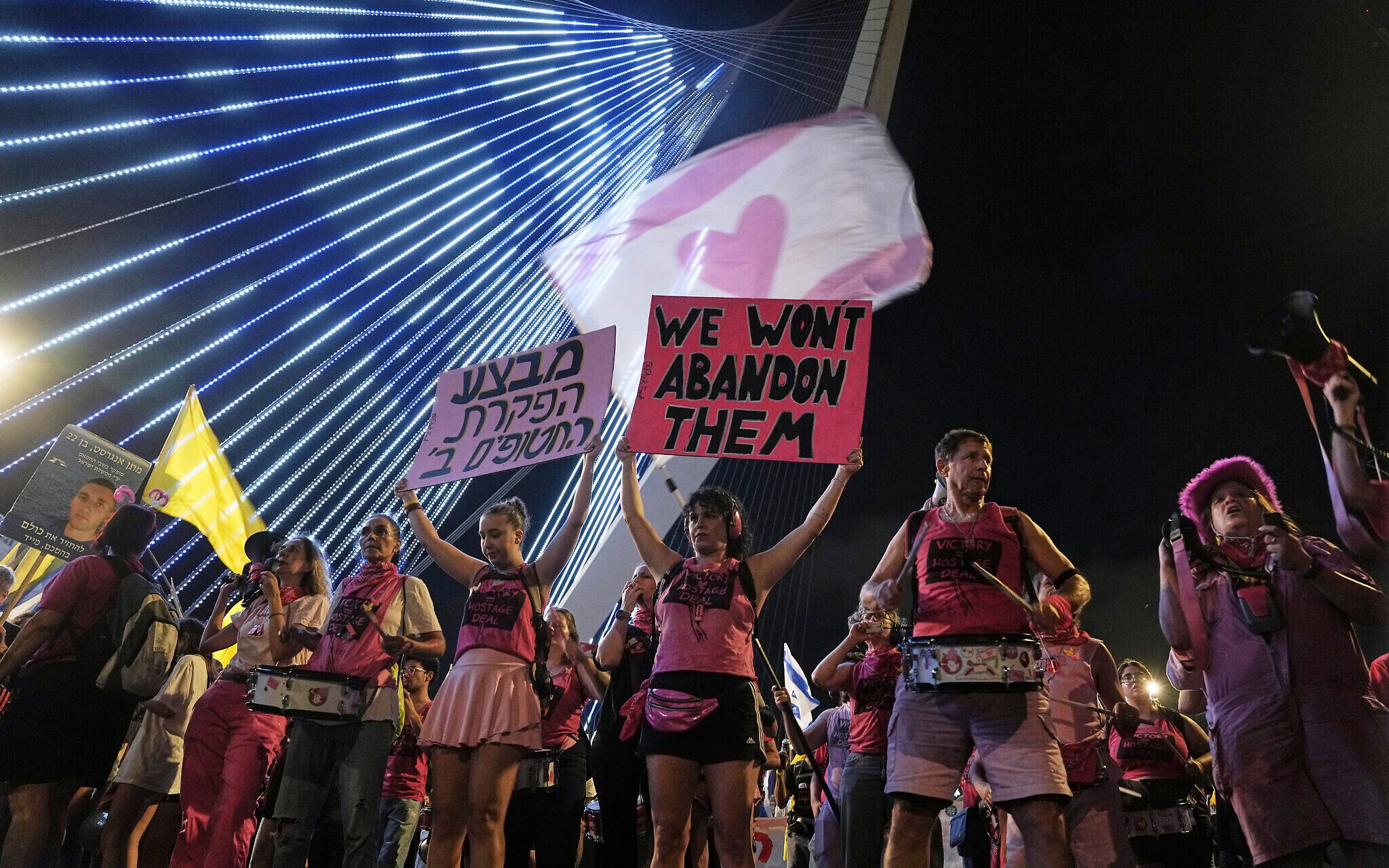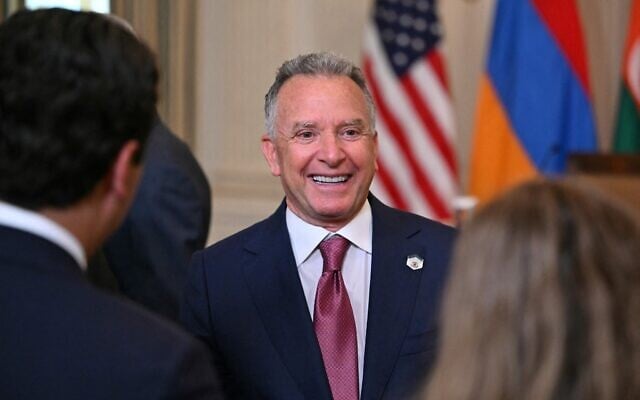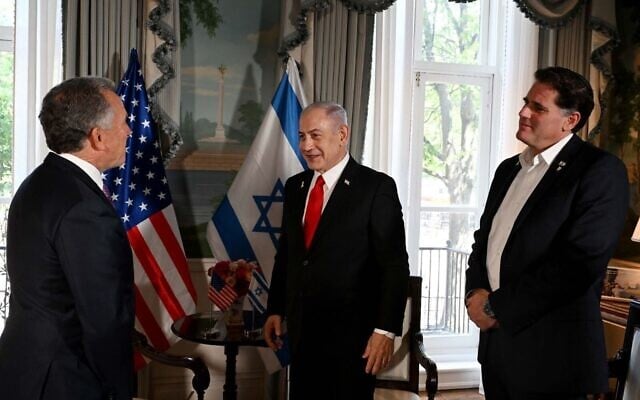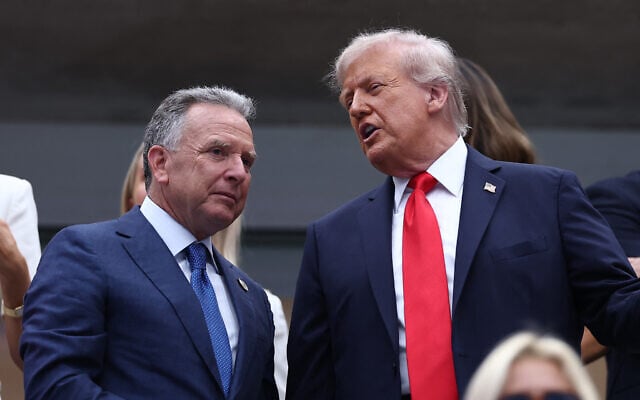


The hostage deal framework recently crafted by US special envoy Steve Witkoff is unlikely to succeed, an Arab mediating source told The Times of Israel on Monday.
The proposal envisions Hamas releasing all remaining hostages within the first 48 hours in exchange for an assurance from the US that Israel won’t subsequently resume the war along with the release of several thousand Palestinians imprisoned in Israel, including roughly 250 serving life sentences for involvement in attacks in which Israelis were killed, the source said.
Hamas has pushed back against the idea of immediately releasing all remaining hostages without concrete guarantees that Israel will not be able to resume the war. In the past, it has sought a UN Security Council resolution that would sanction Israel if it returned to fighting.
It hasn’t found US assurances to be sufficient, the Arab mediating source said, pointing to the Trump administration’s backing of the Israeli decision to resume the war in March rather than transition to the second phase of the ceasefire and hostage release deal that had been in place.
While US President Donald Trump said Sunday that Israel had accepted his terms for a hostage deal that ends the war, Prime Minister Benjamin Netanyahu has yet to hold a cabinet meeting to discuss the exchange, which could well face pushback from his far-right coalition partners over its requirement to withdraw from Gaza where many of them envision Israel reestablishing settlements.
Witkoff has long tried to persuade Hamas through intermediaries that the US won’t allow Israel to resume the war once a hostage deal is in place. However, he has held off on crafting deals that explicitly say so amid concerns that Netanyahu’s far-right coalition partners might make good on threats to collapse the government if he commits up front to end the war in exchange for the hostages, sources familiar with the negotiations have told The Times of Israel.
Despite the Arab mediating source’s pessimism about the deal’s chances, Qatari Prime Minister Mohammed bin Abdulrahman Al Thani pressed Hamas political leaders to “respond positively” to the US proposal during talks in Doha on Monday, an official briefed on the talks told Reuters.
Another possible sticking point was reported by the Saudi-owned Asharq Al-Awsat newspaper, which on Monday cited Hamas sources who said it would be impossible for the terror group to release all 48 hostages from Gaza at the onset of the ceasefire proposed by Witkoff, since some slain captives’ remains are inaccessible due to the IDF presence in Gaza.
Asharq also reported that the new proposal makes no mention of an IDF withdrawal from the Philadelphi Corridor, which runs along the Gaza-Egypt border, nor of plans to reopen that border’s Rafah Crossing — the Gazan side of which has been controlled by the IDF since May 2024. Netanyahu has, in the past, refused to cede Philadelphi, saying controlling it is necessary in order to prevent Hamas from smuggling arms into Gaza.
Channel 12 reported on Sunday that under the new proposal, Israel’s withdrawal from Gaza would be gradual but would take place mostly at the start of the ceasefire. Negotiators would then have 60 days — or as long as it takes — to come to an agreement on the disarmament of Hamas, the specifics of Israel’s withdrawal, and an alternative government for Gaza, according to the network.
Citing a source familiar with the details of the talks, Channel 12 said the proposal includes a clause that Israel will mount a “full withdrawal… subject to the new Gazan government’s ability to maintain security.”
According to the network, Hamas considers that clause to be a “trap” because it would effectively give Israel a double veto: one on what Gaza’s post-war government will look like, and another one on when that government will be considered strong enough to merit an Israeli withdrawal.
Therefore, the network said, the US “day after” plan for Gaza is an inextricable part of a possible ceasefire. The network reported that US President Donald Trump entrusted his son-in-law Jared Kushner — a prominent Mideast adviser in Trump’s first White House — to hammer out such a plan.
A senior US official was quoted by Channel 12 as saying that Israel will have some say in what Kushner’s plan looks like, “but it will be neither a Bibi [Netanyahu] plan nor a Dermer plan” — referring to Strategic Minister Ron Dermer, who, like the prime minister, has rejected any role for the Palestinian Authority in Gaza’s post-war governance.
Israel believes that there is an argument inside Hamas over the new US proposal, with some leaders convinced that Trump’s guarantees cannot be trusted and that Israel has too much control over the pace of its withdrawal, the report said.
If it is to agree to the US proposal, Hamas would need to be convinced that the two other mediators, Egypt and Qatar, are also on board with a comprehensive agreement, according to a senior Israeli official quoted by Channel 12.
“Hamas has to understand from both Qatar and Egypt that the partial deal path doesn’t exist anymore,” said the official.
A separate report on Ynet, which cited sources privy to the negotiations, said the US proposal included “highly significant guarantees” that Israel would not resume hostilities as long as truce talks were ongoing. The IDF would not remain in its currents positions should the proposal go into effect, and a “rearrangement” in troop deployment is likely during the ceasefire, report said.
Previous reports in Hebrew media have said that as part of the US proposal, the IDF would also call off its conquest of Gaza City and remain outside it.
The sources cited by Asharq Al-Awsat said the US had expressed an interest in resuming direct talks with Hamas’s leadership to reach a comprehensive hostage release and ceasefire deal. Previous direct US-Hamas talks sparked criticism in Israel when they were revealed in March.
Asharq Al-Awsat said that, as opposed to previous communications, the Hamas sources referred generally to “mediators” as opposed to Egypt and Qatar specifically.
The newspaper speculated that the change in terminology could indicate that the sources were also referring to Israeli peace activist Gershon Baskin, who conveyed the new US proposal from Trump to Hamas, a source familiar with the matter told The Times of Israel on Sunday.
Baskin, who helped negotiate the 2011 deal between Israel and Hamas that brought about the release of captive Israeli soldier Gilad Shalit, declined Asharq Al-Awsat’s request for comment, the newspaper said.
Trump said Sunday that Israel had accepted the new US ceasefire-hostage proposal, and gave Hamas what he said was his “last warning” to sign on as well. Israel has not confirmed accepting Trump’s offer, but is “very seriously considering” the proposal, according to a source close to Netanyahu.
Terror groups in the Gaza Strip are holding 48 hostages, including 47 of the 251 abducted by Hamas-led terrorists on October 7, 2023, which sparked the war in Gaza.
They include the bodies of at least 26 confirmed dead by the IDF. Twenty are believed to be alive and there are grave concerns for the well-being of two others, Israeli officials have said. Among the bodies held by Hamas is an IDF soldier killed in Gaza in 2014.





